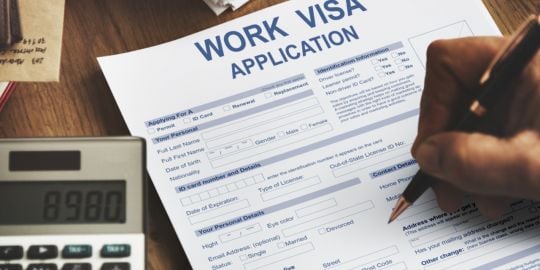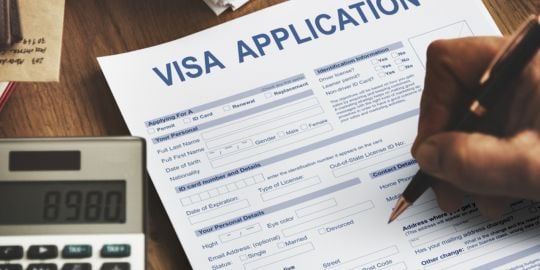Hello, just a few questions, I am from the UK, and looking to extend my tourist visa for a further 3 months. I understand what I need to do to extend this, however, I am just a bit concerned/confused about the `only being able to stay for 180 days per 365 days rule´.
Last year I entered Brazil in May and finally returned to the UK at the start of December, during those 7 months I spent about 2 weeks outside of Brazil in Paraguay and Uruguay, but in total I spent about 200 days inside Brazil well within the 365 day period, thus breaking the rules? Nothing was asked when I cleared immigration on my way out, and nor when I returned last month. Can anyone shed any light on this? Is the rule different for UK citizens and this rule doesnt apply for us?
I have been to Brazil before back in Sept 2016 for a couple of weeks, so would my 365 day period have started then? Running to Sept 2017 (thus some of those 200 days would be recorded in that period) and then a new period would have started after those 365 days concluded taking me to September 2018?
Anyway, as you can see I am a little confused, and would appreciate it if anyone knows the answers to my questions! Thanks
180 days per 365 query
Couchsurfer.
If you were not assessed any overstays when you left Then you have not overstayed. As far as the time it is on a running year.
Jim
couchsurfer
Late Expert Wm. James Woodward posted the clearest explanation of how the time limits are calculated, back in 2012. This still seems to be the method in effect, so here is what he said then:
"Tourist Visa Stay – 180 day per year maximum
The method of calculating the maximum visa stay is the subject of so much confusion that I have decided to try and explain it as clearly as possible so it can be easily understood by all.
The standard in practice used by the Federal Police is that ‘at no time during your present stay in the country you are permitted to exceed the 180 day per year maximum'. So how do they calculate that?
On the date you enter Brazil they (actually the computer in most cases) go back 365 days and count the number of days that you have previously been in Brazil during that period. Please note that the day of arrival and day of departure on any previous visits are also counted as full days in making the calculation even if it was a matter of minutes or seconds.
The number of days is then subtracted from the allowable 180 day maximum stay for this trip. You will then be issued an entry visa for a period of up to 90 days, since a single (un-extended) stay is a maximum of 90 days. The balance of allowable days is used to calculate the number of days for which can extend your present stay in the country by applying for a ‘prorrogação de estado'. This is known as the “rolling year system (or) floating year system”
Examples:
No previous visits to Brazil within the past 365 days – maximum visa stay 90 days PLUS a maximum extension upon request of a further 90 days for a total of 180 days.
A previous visit of 90 days within the past 365 days – maximum visa stay 90 days with NO VISA EXTENSION PERMITTED in this case.
A previous visit of 21 days within the past 365 days – maximum visa stay of 90 days PLUS an extension on request of not more than 69 days for a total of 180 days. (21+90+69 = 180)
Upon leaving Brazil following a stay of the full 180 days you would then have to be out of the country for 180 days just to set the count back to zero, from this point you would then accumulate 1 day for each day of absence that passed. After 365 days of absence you would then be back to your full 180 day allowable maximum. After an absence of only 270 days you could come back for only the ‘un-extended' 90 day maximum.
Anything between 180 and 270 days of absence your stay in the country would be limited to ONLY the number of days you had earned since the 180th day of your absence. This is most important for businesspeople who make frequent short visits to the country every year.
This system is so confusing, in fact, that many Federal Police and almost all of the contracted civilian immigration agents themselves do not understand it well enough to calculate manually and if the computer system that calculates your stay is not operating or if your point of entry is not connected to the system mistakes in calculation are quite common.
Even if you know how the calculation is made and have already figured out your maximum correctly, if the person (in many cases a civilian) should make a mistake in the calculation NEVER argue with him/her or attempt in any way correct the error. This could make matters worse and serve only to make the person angry; this could result in being refused entry altogether. If they make a mistake you are probably stuck with it. You might try taking it up with someone at the Regional Superintendency of the Federal Police following your arrival, but even that is not a sure thing.
Requesting an extension of your visa stay – PRORROGAÇÃO DE ESTADO
This must be done at the Federal Police (Setor de Estrangeiros) nearest where you are staying. Ideally, the request should be made at least 2 or 3 weeks before the date of departure indicated on the current visa entry. Unlike everything else involving visas and immigration in Brazil this is really a very simple and straightforward procedure so don't worry.
You will be required to produce proof that you will still be able to support yourself financially for the extended period, show a return ticket or at least the booking confirmation, address where you will be staying, etc. There is a small fee for which you will be issued a GRU (Guia de Recolhimento da União) to be paid at the Bank of Brazil and when you return with that paid your passport will be stamped with the extension and returned to you.
If you do not speak Portuguese very well it might help to take someone who does with you."









